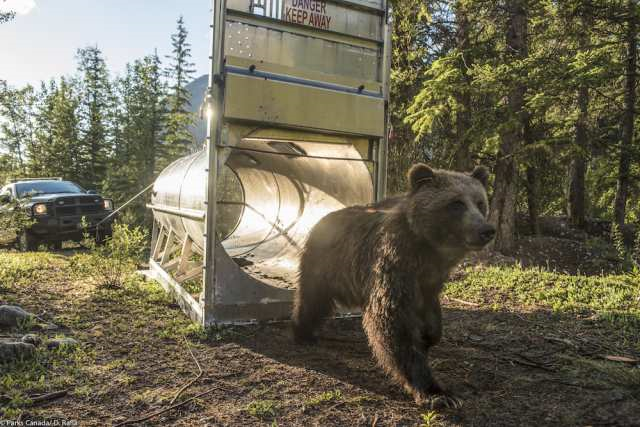SCI FOUNDATION CONTINUES A TRADITION OF EXCELLENCE IN BEAR CONSERVATION AND MANAGEMENT
By: Maria Davidson

Safari Club International Foundation has identified science-based management of bear populations as a primary focus of our conservation programs worldwide. Bears and sustainable management of bear populations in North America have been a focus of SCI Foundation conservation efforts for over two decades, including projects with brown bears in Alaska, grizzly bears in Alberta and British Columbia, and black bears across the United States. Bears are among the most iconic species of wilderness and a symbol of the success of the North American model of wildlife management. As one of only a few truly “dangerous game” species in North America, brown and grizzly bears are also aspirational species for many hunters. Our bear conservation strategy has two primary components: provided scientific data to inform management decisions, including sustainable harvest as an important component where appropriate, and assisting state and provincial agencies with management challenges related to human-bear conflict.
One of the primary goals of the Bear Strategy is to provide science-based information to support the regulated and sustainable harvest of grizzly and black bears. Unfortunately, decisions about hunting of bears in general and grizzlies in particular are often influenced by political and emotional factors rather than scientific evaluation population data. For example, the government of British Columbia explicitly stated that grizzly hunting was biologically sustainable but “no longer socially acceptable” when they instituted a ban in 2017. Three petitions to delist the Greater Yellowstone Ecosystem grizzly population and conduct small and highly regulated hunts from the states of Wyoming, Montana, and Idaho are pending and overdue. While grizzly populations in the lower 48 states are well studied, the remoteness and inaccessibility of grizzly range in places like the Yukon Territory can make collection of population data challenging. SCIF is currently supporting baseline population research in the Yukon to ensure Provincial grizzly bear harvest is sustainable.
SCIF has supported similar bear surveys in other Canadian provinces (for grizzlies) and for black bears in California and Missouri. Our support of early stages of the Missouri Black Bear Project helped to understand the dynamics of the ongoing black bear recovery in that state. Researchers studied bear habitat use and survival, and obtained accurate population estimates that helped the Missouri Department of Conservation develop a black bear management plan. This project eventually led to establishing a stable bear population in Missouri and the subsequent opening of the state’s first ever black bear hunting season in 2021.
Supporting state and provincial efforts to mitigate human-bear conflict has also been an important part of the bear conservation program. Social acceptance for bear populations is greatly impacted by the public’s ability to access reasonable solutions to the many issues experienced when living, hunting, or recreating with bears. Conflict with humans through livestock depredation, real or perceived danger to people, and general nuisance behavior represents a real conservation threat for bears. Mortality due to conflict (e.g., lethal control or defense killings) is the largest source of adult mortality in most grizzly bear populations. Conflict management is also a significant challenge for management of black bears, particularly in areas of high human population density (e.g., New Jersey and Florida) or in Louisiana where recovery of the formerly listed Louisiana black bear has been remarkable. Hunters have been a key component of successful bear management, and SCI Foundation is engaged on this critical issue. We are currently partnering with state agencies on bear outreach and education projects in Louisiana, Wyoming, and Montana, to provide bear spray giveaways to outdoor recreationists in WY and MT, and for electric fencing and other mitigation for livestock producers in Montana. Most recently, SCIF has hired Maria Davidson as their newest member of the Conservation staff. Maria has over 25 years of experience working on bear conservation and management and will be working with SCIF Director of Conservation Dr. Chris Comer and Conservation Manager Joe Goergen to expand SCIF’s bear conflict mitigation programs and other predator-related management and research efforts.
